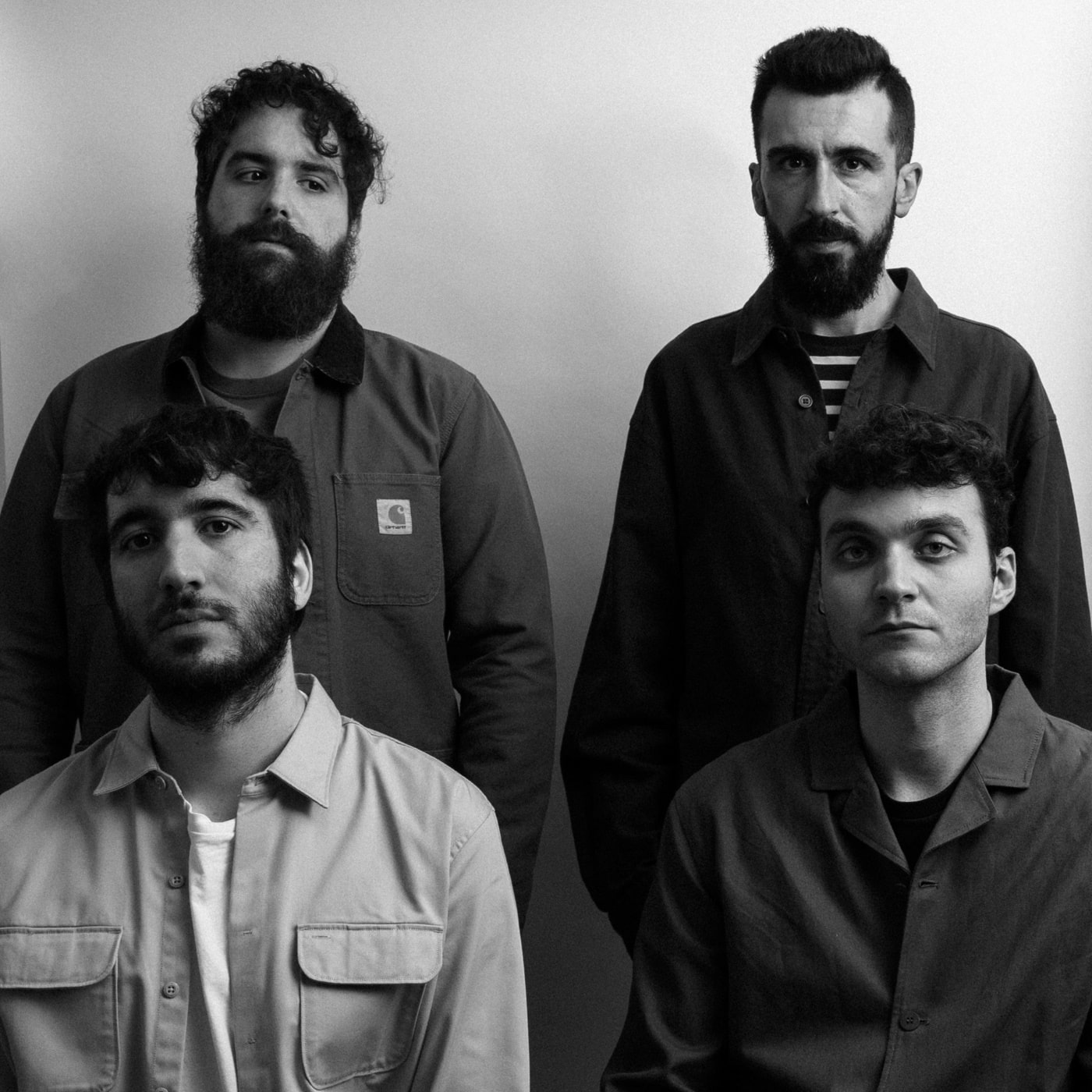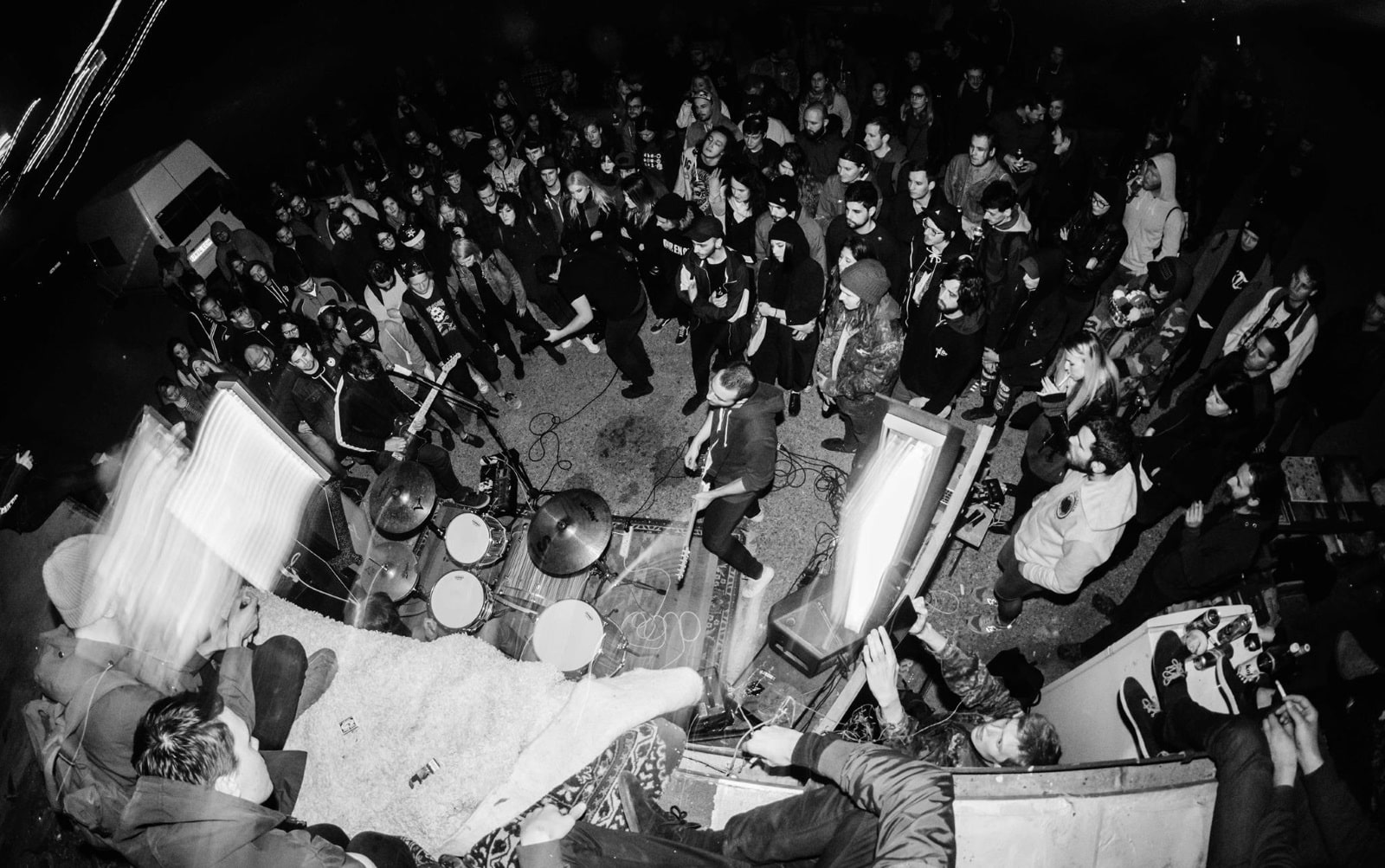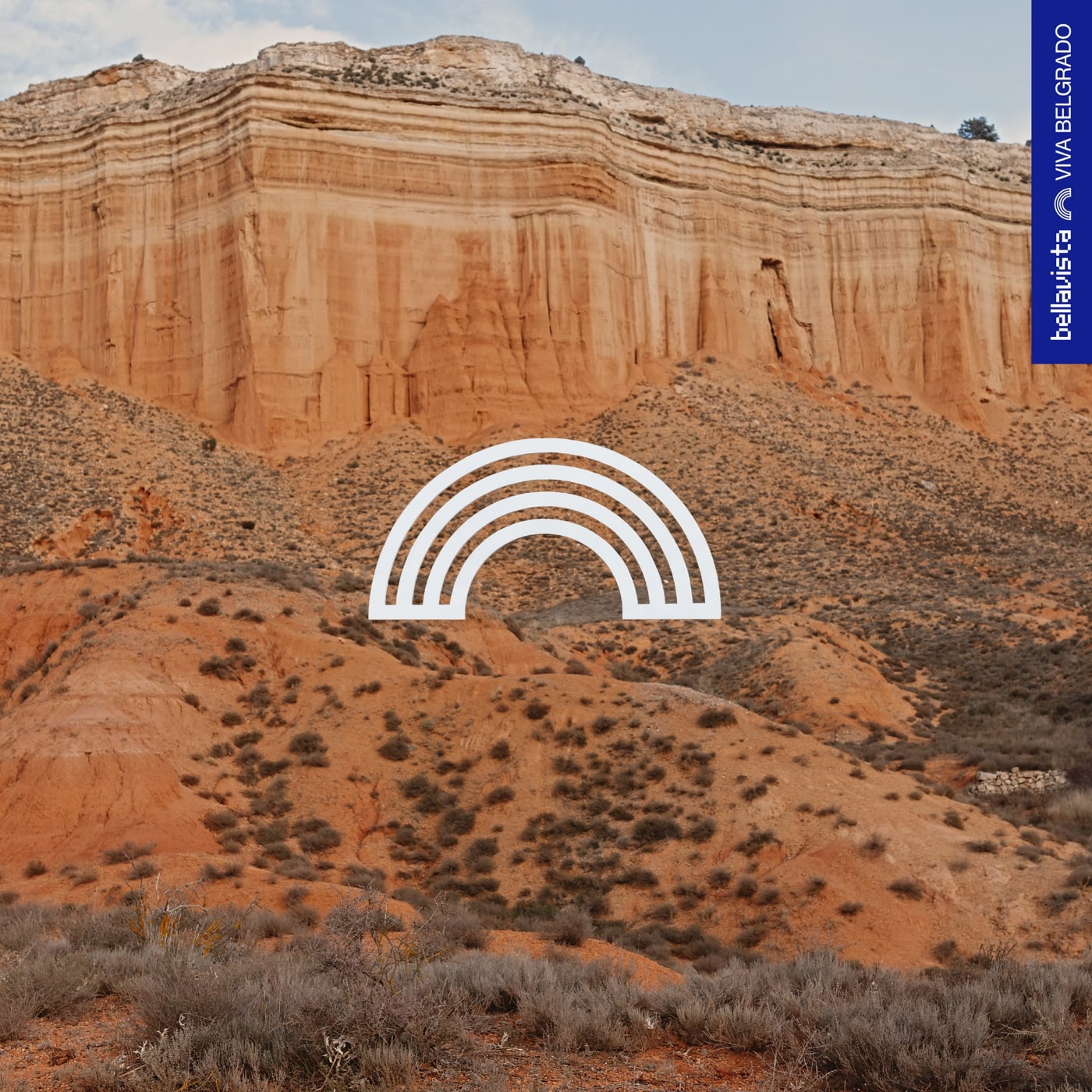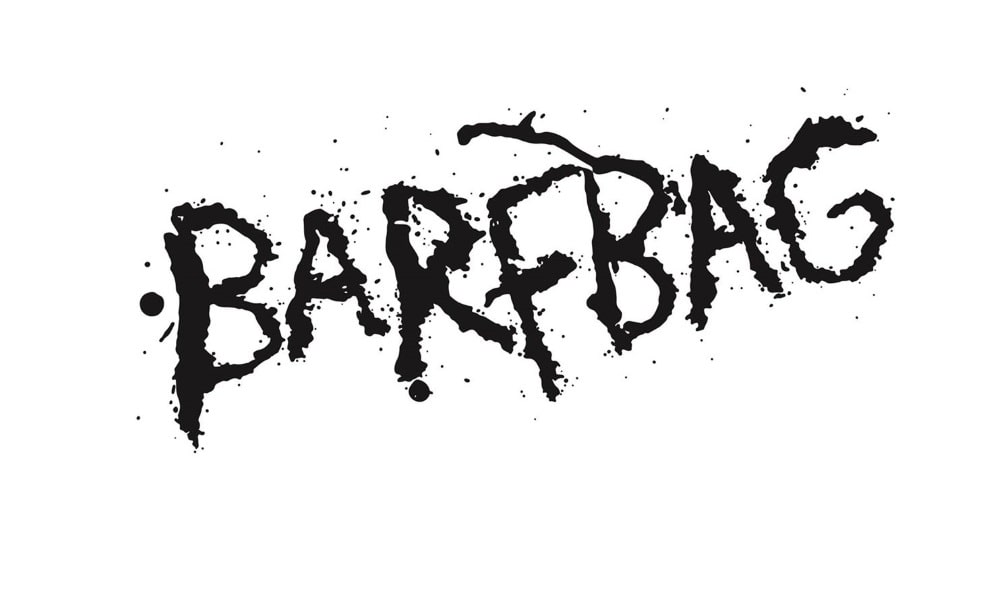After adventurous hours of praising their previous long players, Flores, Carne (2014) and Ulises (2016), we’re beyond stoked to give you the newest album from Cordoba, Spain based post rock / post hardcore / screamo act VIVA BELGRADO! Just unveiled through via Aloud Music Ltd (Barcelona) Walking is still honest Records (Berlin) and Tokyo Jupiter Records (Tokyo), “Bellavista” is available for streaming and free download via Bandcamp and this Mediafire link, which contains the band’s entire discography! Today, we caught up with the band to appreciate their English speaking fans and give you a full track-by-track roundup and unveil some of the stories and meaning behind their new captivating compositions.
On “Bellavista“, VIVA BELGRADO seek to straighten up and fly a little softer, more lyrical, tamping down their screamo influences, ear-wrenching screams and crazy tempos, prying open their songs to let a little more air in, further settling into their panic-stricken sound. The result is a more balanced, more matured offering that is, in many ways, more compelling. “Bellavista” feels like it was composed to match a new, nuanced approach to their expansive noise, resulting in being literally free of weak moments. The record goes by like an energizing breeze, and when it’s finished there’s nothing better to do than play it again.
*Bellavista literally would translate as “beautiful view”, but it has some other connotations. Its the name for different city districts or neighbourhoods all around the world (Chile, Spain, Mexico, Peru). It’s also a synonym for belvedere, an architectural term which refers to an architectural construction build to have an exact desired view.

Una Soga (A Rope)
This song was almost entirely done in only one rehearsal session. The core is pretty simple, just the same two chords through the whole song, but the way in which drums and bass play along and the melodic guitar are what structure the song. I think the instrumental is quite inspired in La Dispute.
On a lyric level, we wanted this song to serve as an introduction for the rest of the album, that’s why we start with a kind of dedication (to those who say, to the girl that). I also liked to start like that because our previous album, Ulises, ended also with a dedication (to life, which means movement) and I’ve always liked when bands play with these kind of Easter eggs, creating links and references between their own albums and songs.
Bellavista (Beaufitul View / Belvedere)
Lyric wise I think this song sintetizas well the general concept of the album. A while ago Pedro said this song is La Dispute x Daïtro x Cala Vento and I think it is quite accurate. It definitely mixes a lot of core influences.
Cerecita Blues (Little Cherry Blues)
We knew that with this song we wanted to work a verse-chorus structure, which is something we’ve never done before. For the drum loop we were also inspired by a La Dispute song. And we joke about the ending being a Foo Fighters ripoff.
I had a lot different vocal versions for this song, some more aggressive and others completely melodic. And these were the lyrics I finished the last, I took a lot of effort for me. I think the continues this new more aggressive rap influence style we start with Una Soga and Bellavista. In fact, there are a couple of bars I take from C.Tangana’s Love’s, one of my favourite albums.
About the title, I also try to create an internal reference here. I always liked to treat song titles as if they were an upper layer of significance/meaning and play with them. I think it adds a broader dimension to lyrics in albums. Here we create a link with Amapolita Blues (Poppy Blues) and we put them at the same distance from the beginning or ending of the trackless respectively.
Más Triste que Shinji Ikari (Sadder Than Shinji Ikari)
This one is the polemic song. A lot of stuff has already been said about it. We always like tracklists to have balance and a good dynamic. We’ve already try to pay attention to that in our previous album with songs as Los Olivos, Por la Mañana, etc. So this time we wanted to take it to the next level, as for us it didn’t make sense to create again a instrumental interlude or Por la Mañana 2.0. So our idea was to create some chill hop inspired look over which I could sing along. The song actually changed a lot but I think it preserves part of that essence.
On a lyrical level, I thought it was fun if try to put myself in the role of a rapper and drop some megalomaniac bars. And the title is an obvious reference to Evangelion. We thought the whole song concept would be much more powerful with this reference, as lo-fi chill hop songs are often looped with an anime loop.
Un Collar (A Necklace)
We’ve been trying for some time to include some flamenco influences in our music, we don’t know shit about flamenco. I think the approach was overall a bit naive and anecdotical, but it brings some new ingredients to the album. We also liked it being after Shinji to create a bigger contrast between the different styles shown on the record.
Lyric wise this is one of the lyrics I feel more proud of. It has a first part in which I talk about doubts and a second one in which I enumerate them one by one. And again, we create another internal reference here, linking it to Una Soga (A Rope): two ways of looking at the the same thing, a rope to hang yourself with or a necklace to dress yourself with.
Ikebukuro Sunshine
This is the oldest song in the record, we composed it in August 2017. I think this one is kind of emo meets Spanish indie-rock, so we thought it was perfect to feature our dear pals from Cala Vento (check them out!). We love Cala Vento, we are bands from the same generation and we have similar ways of doing things, so we thought it was cool to have a song on the album together, as I had already sang on their last record.
The lyrics talk about a conversation with my friend Hideo from Japanese band lang, which is happening at the same time as a WhatsApp conversation, while we are over a bridge in Ikebukuro from which we could stare at the skyscraper Ikebukuro Sunshine and the trains going above us.
Continued below…
Vicios (Vices)
Although it ended up being a lot different, I remember we did this riff while I was extremely obsessed with Birds In Row’s last album. They play with a lot of 3×4 rhythms on it, so we tried to do something similar, trying to grab from that violent and aggressive style they are so good at. I think the lyrics continues some classic style Viva Belgrado way of writing, such as Annapurnas. I was a bit afraid of releasing some of the content of these lyrics as the make me feel naked. But I mention it on this song: emotional exhibitionism as a career.
Shibari Emocional (Emotional Shibari)
We were not sure about making this a separate track from Vicios or leave both as the same track. But the mood Shibari transmitted us was pretty different from the violence in Vicios, so we ended up making them different tracks. I think these lyrics are pretty old school Viva Belgrado, with that metaphorical and ethereal style we practiced a lot.
Amapolita Blues (Little Poppy Blues)
This song started with the idea of being a ripoff of Touché Amoré’s Is Survived By sound. I think on an instrumental level I could have easily been on Flores or Ulises tracklists. Here I’d like to mention Natalia Litvinova, an Argentinian poet who I love and whose books are published on La Bella Varsovia, and editorial house from Córdoba.
Lindavista (Beautiful View)
We weren’t sure about this track making it to the album but truth is it fits very well. I think the last part with the acoustic guitars brings something new to our sound. The acoustic guitars were recorded inside and old pit in Cal Pau in which wine used to be stored, with a beautiful natural reverb.
Lyrics wise this song is a homage to the past while looking at the future. One of my favourite Spanish bands, Nueva Vulcano, say: “hemos hechos cosas”, which means “we’ve done things”.
¿Qué Hay Detrás de la Ventana? (What’s Outside the Window?)
This is the last song we did. The idea was to write a shogaze song, and actually that was it’s working title. It took us a while because we didn’t know how to get out of the same three chords we used through all the song. So we did something Viva does a lot, maintaining the chords but changing the drum pattern. I think this song works very good as the last one.
The title is a reference to The Savage Detectives by Chilean writer Roberto Bolaño, one of my favourite novels. It’s the last sentence of the novel. Last September we toured Mexico and reread the book there to try to create a link the places that appear in the novel, so I thought it was a good idea to steal it for our record, as it fitted well with the concept of the album and all those views we talk about while also asking about the future.











